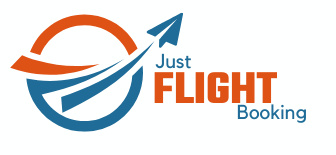Chris McGurk and Jana Winograde on Cineverse’s Plans for Micro Dramas
Chris McGurk and Jana Winograde were ready for the question. As the industry veterans join forces to launch an ambitious short-form content venture dubbed MicroCo, the pair know that the quick demise of Quibi is still on the minds of industry insiders.
“I’ll take that one,” Winograde says on the latest episode of “Daily Variety” podcast. Quibi, the short-form content platform spearheaded by investors Jeffrey Katzenberg and Meg Whitman, burned through more than $1 billion and operated for seven months in 2020 before folding.
“Katzenberg was prescient, but it’s a whole different world than it was in 2020. 2020 was just a completely different time, not just in terms of COVID, but consumers have embraced short form, vertical content in so many ways now, and in ways they just hadn’t become really accustomed to at the time that Quibi launched. So whether it’s YouTube or Tiktok, they’re used to the scrolling, vertical behavior. We’re not trying to create that new behavior,” says Winograde, who was previously president of Showtime Networks, and before that she ran business operations at ABC. She is CEO of MicroCo, which is a joint venture of Cineverse and Lloyd Braun’s Banyan Ventures.
“We’re expanding that behavior to include narrative storytelling. This is now an established format. It’s been prevalent in China for many years. It’s prevalent in Korea. It’s prevalent in Eastern Europe, and they have brought their apps here, and those apps are doing incredibly well on the App Store,” Winograde says.
McGurk, who is chairman and CEO of Cineverse and the former head of Universal Pictures and MGM, sketches out the assets of Cineverse and how they will work to support the launch of the still-to-be-named app that will showcase the microdramas.
“In addition to our originals, we do plan to have a content creator vertical. The content creators are broadening out to give their fans a more 360-degree experience, and we feel like micro series can be a really good pillar of that experience,” McGurk says.
CLICK HERE to subscribe to “Daily Variety” podcast
“We’re sort of looking at as a bridge between the creator economy as it currently exists and the traditional studio produced series, or maybe the better way to say it will be the intersection of the Venn diagram, the overlapping slice. Because right now, what’s happening is the big studios and platforms are trying to fit creators and influencers into long form, traditionally formatted content. And not only is that a lengthy process for such a fast moving space, but that’s not how we’re aware the audience is used to engaging with them. What we can give creators is a more frictionless way to migrate their current audience over to the different creative experience. And then with the platform we’re going to have, we’re going to be able to give them the ability to have the social interaction they’re used to having with creators. And that’s not something you can do in the traditional space.”
Also in the episode, Variety TV reporter Ethan Shanfeld breaks down his reporting on how AI tools are fueling a burst of activity in product placement for film and TV.
“So if the client is Coca-Cola, for example, they can go to Coca-Cola and crunch all the numbers and say, well, ‘If you do a 30-second advertisement in the NBA finals, this is how many people are going to watch the ad. But if you decide to put a bottle of Coke Zero next to Ayo Edebiri Debris’ character in a three minute scene in ‘The Bear,’ we don’t know how many people are going to watch it, but this might be more impactful for your brand,” Shanfeld says.
He also notes that producers are now eagerly courting such deals where they were once shunned.
“What the product placement people are seeing is not only that the producers are soliciting these deals, but that they’re enthusiastic about them,” Shanfeld says. “Right now, as budgets are being slashed in Hollywood, costs are ballooning, producers are finding these avenues to sort of cushion that.”
Listen to Daily Variety on iHeartPodcasts, Apple Podcasts, Amazon Music, Spotify and other podcast platforms.

